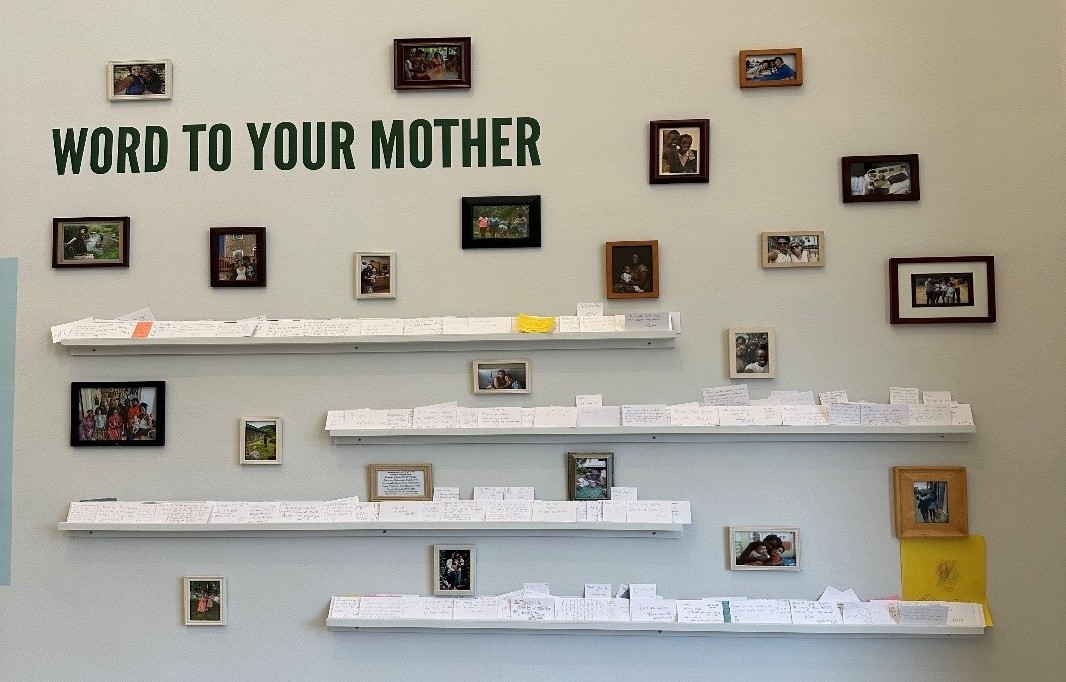Jim Tyree didn’t come right out and say it during his Feb. 3 lecture on the South Side, but based on a look into his crystal ball, he thinks big city news publishing on paper is on the way out. Tyree wondered out loud if his grandchildren will even know what paper and ink are.
“I can imagine my grandchildren sitting on my knees one day and asking, ‘Grandpa, did you really print on paper with some stuff called ink?’ ” marveled Tyree, the publisher of the Chicago Sun-Times. “Content will be the dominant thing. [Newspaper publishing will be about] how many people read it and respond to it.”
He acknowledged that the publishing company he purchased during 2009 has a long way to go.
“How many out there subscribe to the Sun-Times?” he asked members the capacity crowd, who paid $20 per person for breakfast and the opportunity to listen to him. When only a few hands went up, Tyree concluded, “We’ve got some work to do.”
“The business model has to change,” Tyree explained. “My friends in Japan tell me that we (American media) have a strange way of doing things. We give away up-to-the-minute stuff and then try to charge for what is 24 hours old.”
Tyree and his group of investors were the only bidders when they purchased the newspaper for a reported $5 million last year. The acquisition included the Southtown-Star Newspaper and approximately 50 smaller suburban publications. Key to the transaction was that Tyree and his fellow investors did not have to take on the Sun Times’ $750 million in debt. That was left in bankruptcy court.
Tyree didn’t talk only publishing. As chairman of the board of the international financial services firm Mesirow Financial, Tyree keeps his fingers on the pulse of the economy. He was emphatic as to what got the world into the mess it’s in, why it is not worse, and what the future holds for the economy and the workforce.
“There is one thing I am certain of: We’re going to get out of this s _ _ _ we’re in. We’ve got to, because our economy was driven by the consumer. That’s not going to happen again. The consumer that does not have credit capability is not going to lead. Our new economy has been driven, will be driven, by productivity. To be productive, you have to have skills, and you have to be able to use them 24/7, not just 9 to 5.”
Regarding the problem of preparing a 21st century workforce with a 20th century education, he added: “New skills are vital. The problem with most educators is that what they learned worked for them, so they teach it. Today, students need more. City college enrollment is up 35 percent. I fight to get our city colleges to teach more diversified skills.”
Tyree was far less bullish on real estate than he was on jobs, and he praised the government stimulus. “I don’t see any time soon that real estate comes back. It’s going to be a drag on the economy for a long time. That property you consider buying because it is now worth only 50 percent of what it once was, well, you have to be careful because it may be worth only 40 or 30 percent. Short term, the economy is not going to see a lot of jobs or new employment. Not until 2012. What Bush and Paulsen did and what Barack and Geitner continued were essential.”
Tyree marveled that the politicians can’t fix health care and cited health care costs as the top cause of personal bankruptcies in America. “Insurance is in for some big changes,” he said.
A product of Oak Lawn and the South Side of Chicago, Tyree credited his success to his experiences growing up.
“The South Side never leaves you. Never. Ever. Ever. I was blessed to grow up here, and the values I learned on the South Side play well everywhere. I went from St. Barnabas Grammar School to Marist High School, to Illinois State University, to Mesirow. When I started there, it had about 65 employees,” he said. “Mesirow has succeeded because we’re independent thinking, we’re patient, we’re employee-driven. We are diversified and we are not leveraged.”
The appearance by James Tyree was the first of the 2010 “Breakfast with the Experts” speaker series. It is co-sponsored by The Beverly Area Planning Association and Saint Xavier University.






Be First to Comment